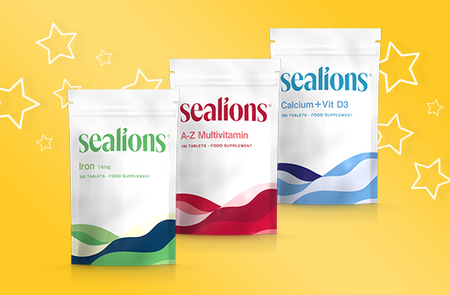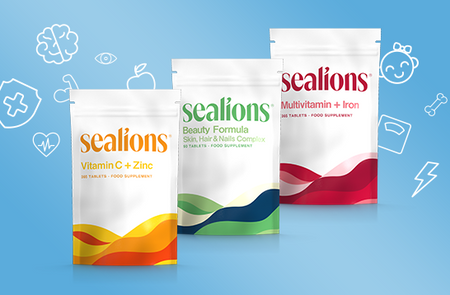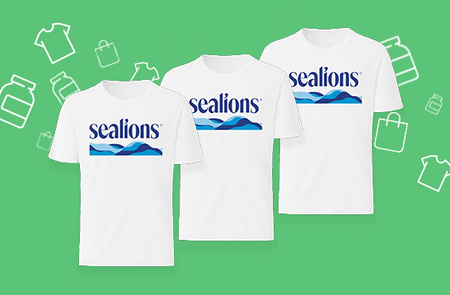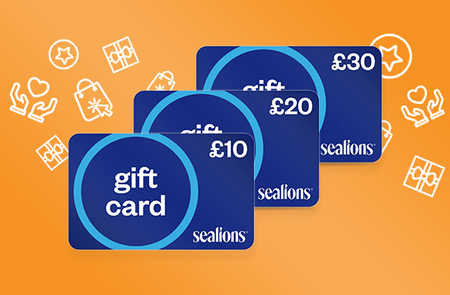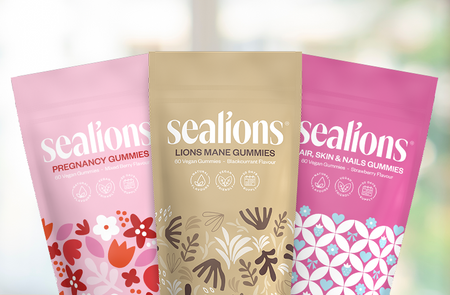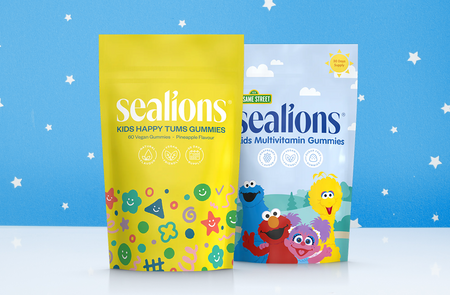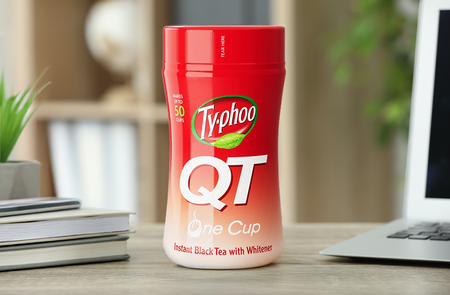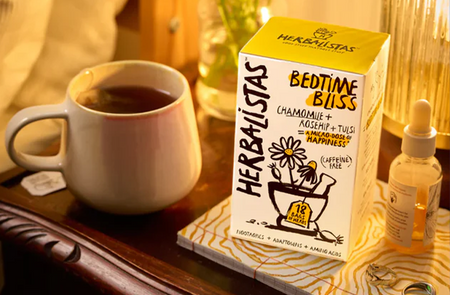
Top Vitamin B12 Rich Fruits and Vegetables: Do They Exist?
Humans can't naturally produce vitamin B12 - one of the most vital nutrients for people of all ages - so introducing the right foods into your diet, or taking supplements, can increase your levels.
Not only does B12 boost your overall health, but it also supports the formation of red blood cells.
While many online resources cite the top vitamin B12-rich fruits and vegetables, the truth is most fruits and vegetables don't actually contain this essential vitamin.
In this guide, we'll reveal the real foods high in vitamin B12 and explore what you can do to supplement your diet to ensure you're getting enough B12.
Why Vitamin B12 is one of the most essential nutrients
Vitamin B12 plays a significant role in overall health and well-being due to its ability to support numerous bodily functions. The average adult should consume around 2.4 micrograms a day, but pregnant women and those with a deficiency often need more.
Do fruits and vegetables contain B12?
Look online, and you'll find conflicting research on whether fruits and vegetables contain B12. While some sources list certain vegetables and fruits rich in B12, most have trace amounts at best.
Here's why:
- B12 Production: Vitamin B12 is produced by archaea and bacteria, which can occur in fruits and vegetables, but only in trace amounts.
- Biology: Animals have a different biological makeup than plants, with the latter not requiring B12 for functioning and growth. Eating plant-based foods won't give you the same levels as eating animal foods. Even fruits and vegetables with trace levels of the vitamin aren't absorbed like animal products.
However, that doesn't mean you should avoid them altogether, as you can absorb many other essential nutrients. The following fruits and vegetables might have trace amounts of B12.
Top 8 Vitamin B12 Fruits and Vegetables
Blueberries
Blueberries contain powerful antioxidants that protect your body against inflammation and promote healthy skin. Many notice their skin becomes clearer and experience fewer pimples when consuming blueberries.
Other benefits include stress reduction, weight loss, and fewer digestive problems. Studies also confirm that blueberries might reduce diabetes symptoms (NCBI).
Bananas
Bananas are one of the healthiest fruits you can consume, containing trace amounts of B12. Better still, they're cheap and provide plenty of energy, making them a top fruit for athletes. The added fibre and potassium can also prevent constipation and regulate your digestive system.
Overall, bananas combine a variety of benefits into one convenient food. Let's not forget they taste great.
Strawberries
Delicious, versatile, and the ultimate treat for summer, strawberries are a favourite for many people. They also contain trace amounts of B12 from growing conditions and pack a powerful punch of B9 (folate). Folic acid is particularly beneficial for pregnant women, supporting foetal development.
You can combine strawberries with cream, dip them in chocolate, or blend them in a smoothie.
Apples
As the saying goes, an apple a day keeps the doctor away. It only contains small amounts of vital B vitamins, but eating an apple gives your body a significant dose of vitamin C. Another benefit of apples is their high water content, which boosts hydration and fibre content.
Oranges
Oranges are powerhouses for your immune system, with incredible amounts of vitamin C. Studies show drinking citrus juices can reduce inflammation and enhance your immune system, making orange juice an excellent option for a breakfast boost.
Does it contain proven amounts of B12? No. However, oranges are a vital fruit full of goodness that deserves a place in your daily intake.
Trail Mix
Trail mixes are great ways to get fruit and protein into your diet. Most brands combine nuts, dried fruits, and chocolate, giving you a delicious energy boost. While most packs of trail mix don't naturally contain B12, you can find fortified versions which can boost your levels.
Potatoes
Potatoes used to contain high amounts of B12 due to the use of natural fertilisers. While your average supermarket potatoes won't contain B12, those grown organically in natural conditions could contain trace amounts.
Eating potatoes is still beneficial, as they contain B6, which maintains blood sugar levels and promotes energy.
Carrots
OK, carrots don't help you see in the dark - but they do have high vitamin A levels, supporting optimal vision. They also contain small amounts of C and B6 vitamins. Do carrots offer significant B12 levels? Well, no. However, they might contain traces in certain growing conditions.
Eating carrots can also improve skin and immunity. They combine well with vegan foods and promote optimal health.
Cauliflower
Bacteria produce B12, and certain growing conditions might result in trace amounts on the surface of the vegetable. This depends on where you buy the cauliflower, as organic vegetables are more likely to contain small amounts of B12.
Cauliflower is abundant in vitamins C and K, which boosts the immune system and cardiovascular health.
Top 7 Meats and fish high in vitamin B12
Animal-derived products contain the highest amounts of vitamin B12; if you consume a carnivorous diet, you might meet your daily recommended intake from food-sources alone. Sheep and cows store B12 in their guts, which means humans absorb it when they consume meat.
Here are the meat and fish products that offer high amounts of vitamin B12.
Animal kidneys and liver
Lamb's liver is the richest source of B12, packing an incredible 3751% of your recommended daily value. Veal and beef liver also contain high amounts of the vitamin, each offering around 3000% of your recommended amount.
If you're not a fan of liver, kidneys are a great alternative. They don't offer as much B12, but there's still a significant amount in a single serving.
Beef
Beef is definitely more palatable than liver and kidneys, and it offers more flexibility. Love burgers? Grabbing yourself a large beef burger will give you a healthy dose of B12. Or, cook up a 190-gram steak and get over 450% of your daily intake.
Frying the beef leads to B12 loss, so make sure you grill or roast it to get the maximum benefits.
Clams
Shellfish are abundant in essential nutrients, making them an excellent addition to any diet. However, knowing which offers the highest amounts of B12 is difficult with thousands of clam varieties.
Molluscs contain high amounts of protein and vitamin B12. Eat 20 small clams and boost your levels by up to 7000%. Baby clams are another great choice, with a standard serving providing up to 200%.
Sardines
Sardines are small salty fish that usually come in cans - although some places sell them fresh. You can combine your recommended B12 and omega-3 amounts with one serving of sardines. Popular ways to eat them include salads, pasta dishes, or pizza toppings.
Trout
Trout is among the most popular fishes due to its unique taste and versatility. A hundred grams of trout offers over 300% of B12 and most of your recommended omega-3 intake. Whether you eat fully-cooked trout or fillets, the nutritional availability can also boost weight loss efforts.
Tuna
Tuna is an excellent option for boosting your B12 intake, as it's accessible and delicious. While tuna fillets offer the highest amount of nutrients, a small can of tuna will still exceed your recommended intake.
Spread it on a sandwich or load up a jacket potato with tuna mayonnaise, and you have an ultra-healthy meal.
Salmon
Cooked salmon packs a strong vitamin B12 punch, with the average serving containing over 200% of the vital mineral. If you're a fan of smoked salmon, you can get around 3.26 micrograms in one serving. Salmon is one of the healthiest fishes you can enjoy, whether on a bagel or crackers.
Other sources of B12
While fish and meats contain the highest amount of B12, other foods pack a healthy punch. The great thing about these foods is that most are suitable for vegetarian diets, and some ensure vegans can boost their daily intake.
Fortified nutritional yeast
Fortified foods are great additions to any diet, as they contain high levels of vitamins and minerals. Nutritional yeast is produced to contain essential vitamins, including B12.
Studies show that individuals who consume plant-based diets and supplement them with nutritional yeast have lower risks of B12 deficiency (NCBI). Many vegans sprinkle nutritional yeast on their foods or blend it with smoothies.
Dairy products
Many vegetarian diets exclude fish and meat but enjoy dairy products, which means you can get high amounts of protein, healthy fats, and vitamin B12. Switching from low-fat milk to a cup of whole milk offers up to 50% of your recommended daily intake, while cheese can provide up to 28%.
While fish and meats contain higher amounts of the vitamin, research suggests that the body absorbs it from dairy products quicker (PubMed).
Fortified cereals
Fortified breakfast cereals are an excellent way to boost your B12 intake and enjoy other essential nutrients in one breakfast. Shredded wheat, Special K and Cheerios are all affordable ways to introduce B12 into your diet. Combine them with milk, and you've got an incredibly healthy breakfast.
Eggs
It will probably come as no surprise to learn that eggs are packed with beneficial nutrients and offer a healthy dose of B2 and B12. Eating two large eggs daily provides a significant amount of B vitamins while also filling you up and supporting your weight loss journey.
It's important to remember that the yolks often contain the most nutrients, so remember to include them. Eating scrambled eggs gives you the perfect dose of B12 to start your day and stay healthy.
Fortified dairy-free milk
Those who follow a plant-based diet or have a dairy intolerance have a vast selection of non-dairy milk to choose from. From traditional soy milk to almond, cashew and oat milk products, it's easy to enjoy your morning coffee or bowl of cereal.
While most of these milks don't have natural B12, they're fortified with the vitamin, making them ideal for boosting your levels.
Benefits of Vitamin B12
The following B12 benefits are all backed up with scientific evidence.
Promoting healthy red blood cells
Vitamin B12 is integral to the production of red blood cells, and people with low levels are more at risk of anaemia. When you don't get enough of the vitamin, your blood cells will change shape, making it harder for them to move into the bloodstream.
Foetal development
Most people associate folic acid with a healthy pregnancy, but B12 also plays a significant role in the reduction of neural tube defects. Research shows that pregnant women with lower levels are up to three times more likely to have a child with defects (PubMed).
Mental health benefits
Physical health issues often overshadow stress and depression, but mental illness can impact all elements of your life. While research is still ongoing to connect B12 with improved mental health, one study did conclusively prove that people with lower levels are more at risk of depression (NIH).
Cognitive and nervous system support
Vitamin B12 can ensure your brain and nerve cells function correctly, boosting memory and cognitive performance. The AAN shows that optimal levels of B12 can reduce the risks of developing Alzheimer's and other neurological disorders.
Bone health
Bones with low mineral density put people at greater risk of conditions like osteoporosis, which can cause long-term inflammation and complications. While more research is required, specialists suggest there might be a link between low vitamin B12 levels and bone mineral density.
Energy levels
B12 and other B vitamins are renowned for promoting energy production in individuals with a deficiency. While taking B12 alone won't enhance your energy, it can be an effective treatment if you already have low levels.
Studies show that B vitamins support energy metabolism, which can help with weight management studies (NIH).
Recommended daily B12 intake
|
Life Stage/Group |
Recommended Daily Intake |
|
0 - 6 months old |
0.4 mcg |
|
7 - 12 months old |
0.5 mcg |
|
1 - 3 years old |
0.9 mcg |
|
4 - 8 years old |
1.2 mcg |
|
9 - 13 years old |
1.8 mcg |
|
Teenagers up to 18 years old |
2.4 mcg |
|
Adults |
2.4 mcg |
|
Pregnant individuals |
2.6 mcg |
|
Breastfeeding individuals |
2.8 mcg |
How can vegetarians and vegans reach their recommended B12 intake?
Vegetarians and vegans are most at risk of vitamin B12 deficiency - especially individuals who follow a plant-based diet.
While you can use nutritional yeast and other fortified foods, taking dietary supplements is a convenient way to avoid the common symptoms of low B12 levels and promote a healthy life. Vitamin supplements are easy to take and offer maximum absorption.
Vitamin B12 supplements
Taking a daily vitamin B12 supplement enables you to boost your energy, immunity, and cognitive functioning. At just £5.00 for a 365-day supply, you can save money on fortified foods and enjoy numerous health benefits.
Vitamin B-Complex
If you want the convenience of taking each essential nutrient in the B vitamins group, an all-in-one supplement is beneficial. The Vitamin B-Complex blend packs a powerful punch and supports your overall well-being, including immunity, cognitive function and energy metabolism.
It can also reduce the risks of heart disease due to B6 and B12 vitamins being able to metabolise homocysteine.
The signs of a vitamin B12 deficiency
- Tiredness: A lack of energy and general lethargy are common symptoms of low B12 levels. Some people might experience fatigue from general activities and exercise.
- Appetite Issues: A loss of appetite or feeling full quickly can also lead to weight loss.
- Mouth Sores: People with a B12 deficiency are more at risk of mouth ulcers, which can be incredibly painful and lead to complications.
- Tingling: Experiencing tingling or numbness in the feet and hands is also a symptom. However, it's rarer than other B12 complications.
- Cognitive Symptoms: Problems remembering items and brain fog can impact your personal and professional life.
- Mental Health Issues: Mood swings, including depressive symptoms and irritability, are common side effects of vitamin B deficiencies.
- Vision Problems: Severe B12 deficiency might cause vision issues. In the most serious cases, it can lead to blindness.
- Skin Changes: If your deficiency leads to anaemia, it can result in skin changes, including pale or yellow tones.
As you can see, vitamin B12 deficiency can cause a range of health problems, but taking supplements can make a significant difference to your well-being.
The bottom line
As you can see, many foods are rich in vitamin B12, but those with restrictive diets might struggle to maintain overall health and well-being. Supplements are an easy way to ingest rich sources of B12 without compromising your beliefs.
Shopping with Sealions is the best way to give your body what it needs without financial sacrifices. Our vitamin B supplements provide excellent value for money, costing just a fraction of what you'd usually spend.
We reduce our margins and pass the savings directly onto you, giving each customer access to fantastic savings. Fill up your basket today, and please feel free to contact us if you require support.
Tagged:

